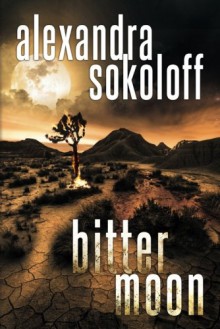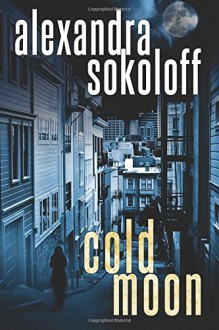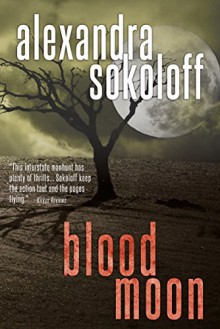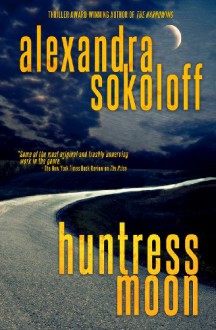

 ¨
¨
"Blood Moon" follows straight on from "Huntress Moon", continuing the dance between Special-Agent-I’m-so-straight-I’d-break-rather-than-bend Matthew Roarke and the Huntress, the woman who kills bad guys.
The writing in "Blood Moon" is just as strong as in the previous novel. The actions scenes are intense, the violence is vivid and repulsive and Roarke's introspective interludes are delivered with skill. This, together with a violence-soaked, tension-filled plot made for an engaging read.
Yet, I finished the book uncertain that I want to go on with this series. Two things bothered me: I felt I was being fed atrocities to keep my interest and I didn't believe in the development of Roarke's character.
This book is heavy on the gritty realism of human trafficking. It also vividly recounts the slaughter of families in their homes using a blade and splattering lots of blood. I know how big an evil modern slavery is. I was appalled to learn how many "familicides", usually the father shooting everyone and then suiciding, there are in the US in a year. I understand that the grim details of trafficking and slaughter are necessary to give the context within which the Huntress was created and continues to operate and to provide a reason for Roarke's slow slide away from the protocol. Nevertheless, I began to feel that these details were there to spice up the book and stoke my responses. Maybe that's what thrillers are for. If so, I don't want it.
The main thing I struggled with in "Blood Moon" was what Special Agent Roarke had become. He no longer follows protocol. He barely briefs his team. He and his retired-but-still-allowed-on-crime-scenes-and-stake-outs mentor have adopted a mystical approach to crime-solving that I thought was unlikely to work or to be tolerated.
I grew tired of how Roarke romanticised the main women in the book. For a guy who is supposed to be an expert in profiling people, I found his inability to see these woman clearly, hard to believe.
He can't look at the woman analyst in his team without being distracted by her "exotic" Indian looks and her calm (as in how-surprising-is-that-in-a-woman?) manner under stress. He sees her research as a form of magic. He seems to have no understanding of how he sees the world.
Then there's the social worker he has sex with. He can barely see her at all and sneaks away rather than be made to see her.
He's set the Huntress on a pedestal. He pays lip-service to the idea that her childhood trauma has arrested her development at a pre-rational stage but he shows no real understanding of what the woman is likely to do.
I felt Roarke was a hollow space at the centre of what should have been a character-driven book.

 Log in with Facebook
Log in with Facebook 









